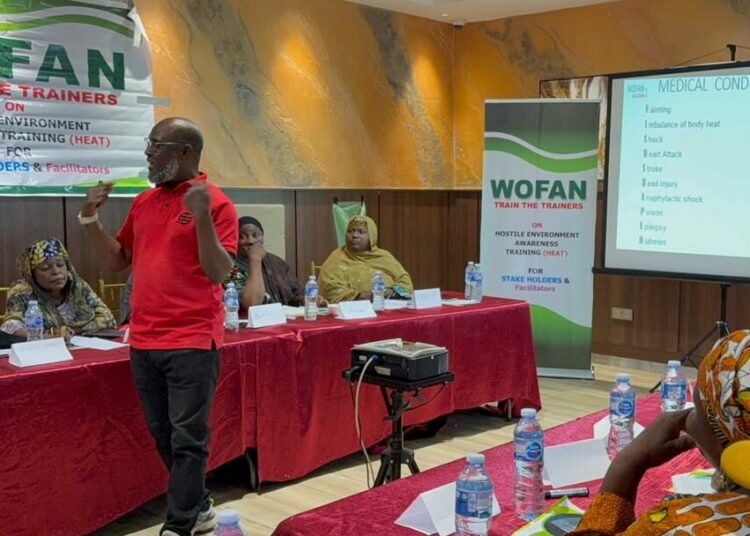The Women Farmers Advancement Network (WOFAN) has organised a three-day safety, prevention, and security awareness and management training under its ICON2 project to improve the safety and precautions of farmers and agricultural extension workers against farm and domestic accidents.
The workshop, tagged Hostile Environment Awareness Training (HEAT) was to equip participants with essential first aid, emergency response and conflict management skills.
Speaking during the training, WOFAN’s country project director, Dr Salamatu Garba, emphasised the critical need for such an initiative, noting that the organisation brought together its stakeholders, including field officers, farmers and media personnel, to address life-threatening incidents often overlooked on farms and in rural communities.
“This is one of the rare trainings we do for all staff, everyone actually needs this, irrespective of status, we are looking at both home and farm accidents, as well as first aid before taking victims for emergency care,” Garba said.
She described the training as a wake-up call to real dangers encountered on the field, such as fainting, fires, sharp object injuries, broken limbs or sudden attacks.
“From the farm, if there is an accident, we are working on developing an app that allows the extension worker or supervisor to press an emergency button. It should alert the nearest hospital, road safety agency, or relevant emergency service,” she added.
The training also focused on strengthening community conflict resolution skills, particularly between livestock and crop farmers. “We work with both groups and encourage mutual respect.
We even urge journalists to stop using divisive terms like ‘herdsmen’ and instead say that livestock farmers’ language matters, it fosters peace,” Dr Garba said.
The HEAT training is part of WOFAN’s broader strategy to improve rural resilience and ensure food security through safe farming practices. Dr Garba noted that follow-up training and retraining would continue in phases, cascading knowledge from national to state and grassroots levels.
Also speaking at the training, Hajia Maimuna Lawal, the project director on strategies and innovation, described the program as timely and life-saving and as creating WOFAN’s consciousness about tackling security and risk management.
For her part, “WOFAN’s focal person in Adamawa State, Mrs Petuniya Kefas, said, “The training has helped me personally. There are things I used to do wrong when responding to accidents, but now I know the right steps. It’s important to assess and stabilise the victim before rushing to the hospital. “
Mrs Kefas said she plans to replicate the training across rural areas in Adamawa, ensuring that women farmers are empowered with practical emergency response skills.
“We’ll gather them and train them just like we were trained. We’ll even invite experts to demonstrate. That way, they can help themselves and save lives,” she added.
The WOFAN-ICON2 project continues to support innovation in agriculture, rural development and safety awareness, especially for women and youth farmers who form the backbone of Nigeria’s food production system.
One of the facilitators, Mallam Malami Kaoje, called for more caution as he sought the immediate assistance of emergency units, experts, and first aiders.
The MasterCard Foundation is partnering with organisations to create a five-year programme targeting 675,000 farmers. The goal is to create 10 million jobs in Africa and 1 million jobs in Nigeria.





